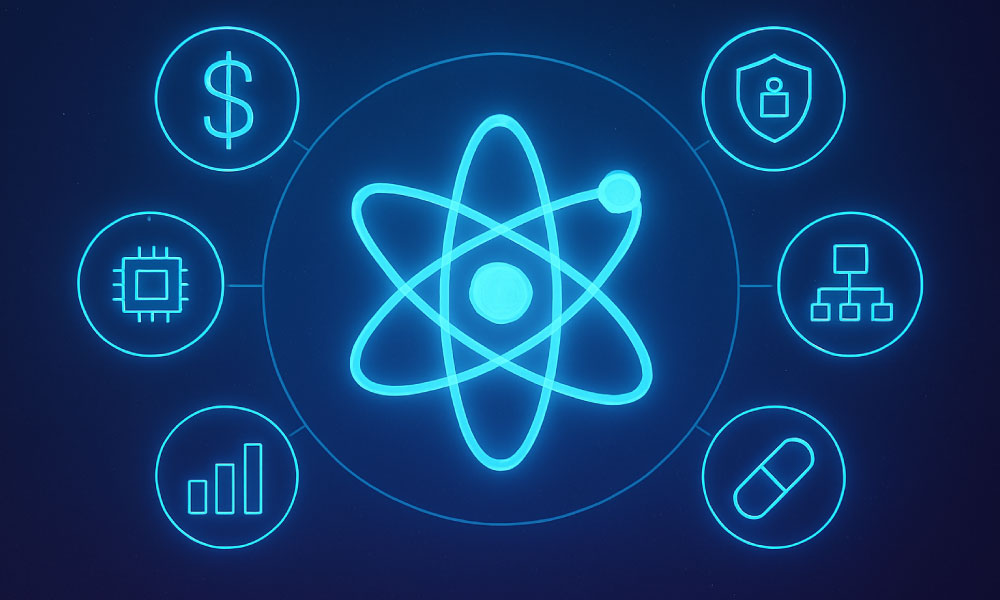As we move into an era defined by big data, artificial intelligence, and cybersecurity threats, one emerging technology promises to revolutionize how we process and analyze information: quantum computing.
While still in its early stages, quantum computing could potentially solve problems that are currently beyond the reach of classical computers. From unbreakable encryption to solving the mysteries of the universe, the possibilities are vast—but so are the challenges.
In this article, we dive deep into what quantum computing is, explore its biggest advantages and disadvantages, and offer insights into what it means for the future of technology, science, and business.

What Is Quantum Computing?
Quantum computing is a new paradigm in computation based on the principles of quantum mechanics—a field of physics that deals with the behavior of particles at the atomic and subatomic level.
Unlike classical computers that use bits (0s or 1s), quantum computers use qubits, which can exist in multiple states at once thanks to:
- Superposition: A qubit can represent both 0 and 1 simultaneously.
- Entanglement: Qubits can be linked together in such a way that changing the state of one instantly affects the other, regardless of distance.
These properties allow quantum computers to process an astronomical number of possibilities simultaneously, making them ideal for solving specific types of complex problems.

The Benefits of Quantum Computing
1. Exponential Processing Power
Quantum computers can evaluate many outcomes at once. While a classical computer would take years to solve a complex problem (e.g., factoring massive numbers), a quantum computer could do it in seconds.
Example: Google’s 2019 quantum computer solved a problem in 200 seconds that would have taken the world’s most powerful supercomputer 10,000 years.
2. Revolutionizing Artificial Intelligence
Quantum computing could turbocharge AI and machine learning by speeding up training times for algorithms, improving pattern recognition, and enabling faster decision-making.
Application Areas:
- Natural language processing
- Fraud detection
- Autonomous systems
3. Advancing Drug Discovery and Materials Science
Simulating molecules and chemical reactions at the quantum level can lead to breakthroughs in developing new drugs, materials, and vaccines.
Current Challenge: Classical computers struggle to model molecular interactions due to the number of variables. Quantum computing can simulate these interactions with far more precision.
4. Improved Logistics and Optimization
Quantum computing could solve optimization problems faster—such as route planning, supply chain logistics, or resource allocation.
Example: A delivery company could use a quantum algorithm to find the fastest route for hundreds of trucks across thousands of locations—far more efficiently than traditional systems.
5. Quantum Cryptography and Cybersecurity
Quantum computing could enable quantum key distribution (QKD), a form of secure communication that is theoretically immune to eavesdropping.

The Drawbacks and Limitations
1. Hardware Instability and Fragility
Qubits are extremely sensitive to their environment and can easily lose their quantum state due to noise, heat, or interference—this is called decoherence.
Fixing this issue requires advanced error correction and maintaining qubits in near-absolute-zero temperatures, which adds cost and complexity.
2. High Development Costs
Building and maintaining quantum hardware is extremely expensive. It requires:
- Cryogenic cooling systems
- Precision engineering
- Specialized facilities
As of now, quantum computing is mainly in the hands of companies like IBM, Google, and D-Wave.
3. Limited Software Ecosystem
There are currently very few algorithms that can run efficiently on a quantum computer. Developers need to learn quantum programming languages (like Qiskit or Cirq), and the learning curve is steep.
4. Security Risks to Current Encryption
While quantum computing may one day protect data with quantum encryption, it also threatens to break existing encryption protocols like RSA and ECC. This could compromise internet security if industries don’t adopt post-quantum cryptography in time.
5. Not Universally Better
Quantum computing isn’t a faster replacement for all computing tasks. In fact, for many common workloads (like web browsing, email, or gaming), classical computers remain more efficient.
Real-World Applications (Present and Future) | |
Industry | Potential Use Cases |
Healthcare | Drug discovery, protein folding, personalized medicine |
Finance | Portfolio optimization, risk modeling, fraud detection |
Cybersecurity | Quantum cryptography, secure data transmission |
Aerospace & Defense | Secure communications, optimization of mission plans |
Manufacturing | Smart material design, production line optimization |
Climate Science | Atmospheric simulations, carbon capture modeling |

The Road Ahead: Is Quantum Computing Ready?
While major players like IBM, Google, and Amazon are investing heavily in quantum R&D, fully functional, error-free quantum computers are still years—possibly decades—away.
However, cloud-based access to early-stage quantum systems (like IBM Quantum Experience or Amazon Braket) is already enabling businesses and researchers to experiment with real quantum circuits.

Final Thoughts
Quantum computing is not just another trend—it’s a foundational shift in how we think about and solve problems. Its potential to transform industries is real, but it won’t replace classical computing—it will complement it for specific use cases.

